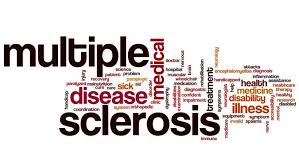
If you’ve recently received a diagnosis of multiple sclerosis (MS), you may feel overwhelmed, sad, angry, shocked, in disbelief, or even in denial.
At the same time, you may feel relieved to finally make sense of your symptoms. Rest assured that whatever you’re feeling, it’s completely normal, and you won’t have to go through this alone — 2.8 million people worldwide have MS.
“Fear and anxiety after diagnosis can make you want to withdraw or hide,” says clinical psychologist Rosalind Kalb, PhD, vice president of the Professional Resource Center of the National MS Society.
“And while that may be appropriate during those first few days or weeks, it’s reaching out for resources, assistance, and support that will be incredibly valuable, helping you to live a full, meaningful life,” she says.
Healthline recently hosted a roundtable discussion called “The MS Handbook I Wish I’d Had” featuring clinical psychologist Tiffany Taft, PsyD, who specializes in chronic disease, and participants who have MS — David Bexfield, Matthew Cavallo, Fred Joseph, and Lina Light — to learn more about what those who are newly diagnosed need to know.
We spoke with them, as well as other medical professionals, to deliver the critical advice and assurance you need right now.
Processing the news
When you’re first diagnosed, your initial instinct may be to imagine the worst case scenario.
“Be patient and try to stay in the moment versus going down the paths of what-ifs,” says Taft, who is also an assistant research professor at the Northwestern University Feinberg School of Medicine.
“That also means not underestimating your ability to cope. Instead of downplaying the likelihood of possible outcomes, say, ‘Hey, that could happen.’ Leaning into the feared event can help quell anxiety more than just saying, ‘That probably won’t happen,’” she says.
Your next thought might be, “‘How do I navigate all this medical stuff? I have all these medications to take, side effects that sound scary. What is this going to look like? How am I going to fit this into my life?’” Taft says.
Taft suggests arming yourself with information — but not by Googling your symptoms or diving into message boards. “They’re not informative and they can be scary,” she says, particularly early on, when you’re still learning about the condition. That said, both can be good options later on, once you have your bearings.
Instead, when looking for information, go straight to credible medical websites and MS-focused organizations, such as:
- National MS Society
- Can Do MS
- MS Views and News
- Multiple Sclerosis Foundation
- Multiple Sclerosis Association of America
What your diagnosis means
Although MS affects everyone differently, there are four basic types of MS.
Clinically isolated syndrome (CIS)
CIS refers to a single episode in which neurological symptoms (like vision problems, numbness, and weakness) last at least 24 hours. It’s usually caused by the loss of myelin (the protective covering of nerve fibers) in the brain, spine, or optic nerve.
If an MRI detects MS-like brain lesions following this CIS episode, there’s a 60 to 80 percent chance of developing MS within the next few years, according to the National MS Society.
If no lesions are detected, there’s a roughly 20 percent chance of developing MS within the next few years.
Stay informed with MS news and information - Sign-up here
For MS patients, caregivers or clinicians, Care to chat about MS? Join Our online COMMUNITY CHAT



